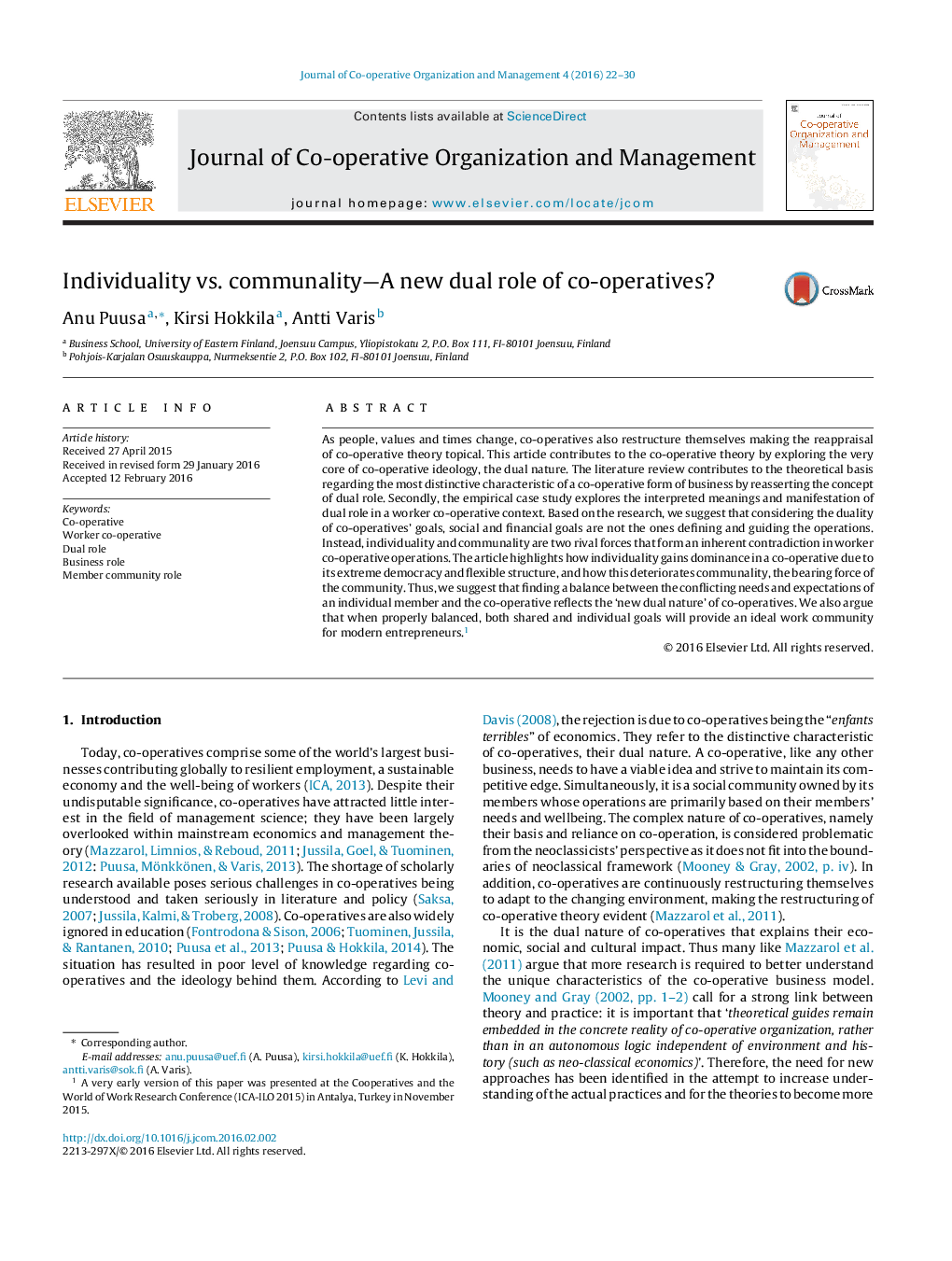| Article ID | Journal | Published Year | Pages | File Type |
|---|---|---|---|---|
| 1019943 | Journal of Co-operative Organization and Management | 2016 | 9 Pages |
•Finding a balance between conflicting needs of a member and a co-op may reflect the 'new dual role’ of co-operatives.•The article presents an analytic synthesis of the concept of dual role, its content, meanings and practical manifestation.•The values of new co-operators are changing and leading to more individualistic interpretations of the co-operative purpose.•When individual and communal needs are balanced, a co-op can provide an ideal work community for modern entrepreneurs.
As people, values and times change, co-operatives also restructure themselves making the reappraisal of co-operative theory topical. This article contributes to the co-operative theory by exploring the very core of co-operative ideology, the dual nature. The literature review contributes to the theoretical basis regarding the most distinctive characteristic of a co-operative form of business by reasserting the concept of dual role. Secondly, the empirical case study explores the interpreted meanings and manifestation of dual role in a worker co-operative context. Based on the research, we suggest that considering the duality of co-operatives’ goals, social and financial goals are not the ones defining and guiding the operations. Instead, individuality and communality are two rival forces that form an inherent contradiction in worker co-operative operations. The article highlights how individuality gains dominance in a co-operative due to its extreme democracy and flexible structure, and how this deteriorates communality, the bearing force of the community. Thus, we suggest that finding a balance between the conflicting needs and expectations of an individual member and the co-operative reflects the ‘new dual nature’ of co-operatives. We also argue that when properly balanced, both shared and individual goals will provide an ideal work community for modern entrepreneurs.1
